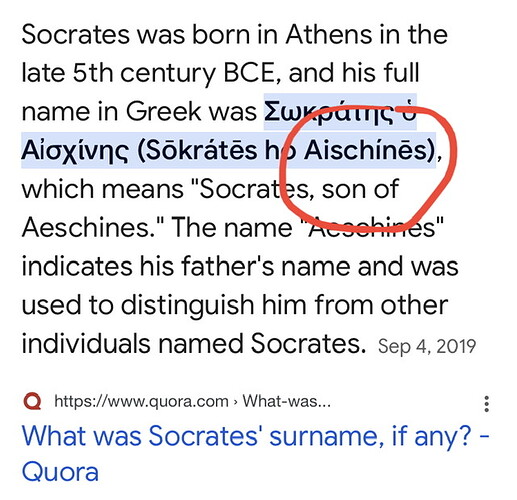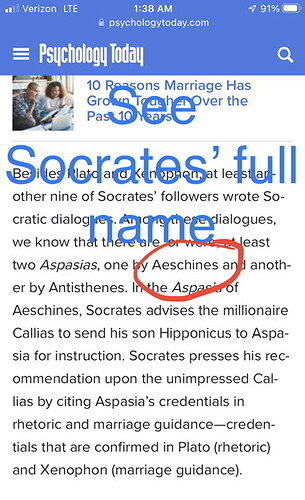It’s not nit picking… “Using the people in his dialogues to make his points for him” may mean multiple things. It certainly doesn’t mean those people are his spokesmen, although they may be on occasion. To be sure, Socrates/the Athenian stranger is his spokesman far more than the others, but even he doesn’t need to make his points by what he says… Here’s an example of his making a point both by what he says and what he does not say:
“Apoll. Well, the tale of love was on this wise:—But perhaps I had better begin at the beginning, and endeavour to give you the exact words of Aristodemus:
He said that he met Socrates fresh from the bath and sandalled; and as the sight of the sandals was unusual, he asked him whither he was going that he had been converted into such a beau:—
To a banquet at Agathon’s, he replied, whose invitation to his sacrifice of victory I refused yesterday, fearing a crowd, but promising that I would come to-day instead; and so I have put on my finery, because he is such a fine man. What say you to going with me unasked?
I will do as you bid me, I replied.
Follow then, he said, and let us demolish the proverb:
To the feasts of inferior men the good unbidden go; instead of which our proverb will run:—
To the feasts of the good the good unbidden go; and this alteration may be supported by the authority of Homer himself, who not only demolishes but literally outrages the proverb. For, after picturing Agamemnon as the most valiant of men, he makes Menelaus, who is but a fainthearted warrior, come unbidden to the banquet of Agamemnon, who is feasting and offering sacrifices, not the better to the worse, but the worse to the better.
I rather fear, Socrates, said Aristodemus, lest this may still be my case; and that, like Menelaus in Homer, I shall be the inferior person, who
To the feasts of the wise unbidden goes. But I shall say that I was bidden of you, and then you will have to make an excuse.
Two going together, he replied, in Homeric fashion, one or other of them may invent an excuse by the way.”
(Plato, Symposium, trans. Benjamin Jowett, towards the beginning.)
Socrates going to Agathon’s feast is both an ugly or ignoble man going to the feast of a beautiful or noble one, and a good or courageous man going to the feast of a bad or cowardly one; while Aristodemus going to Agathon’s feast is both an ugly or ignoble man going to the feast of a beatiful or noble one, and a bad or cowardly man going to the feast of a good or courageous one…
https://www.youtube.com/watch?v=1hgmCXKgPgg&t=435s
[size=1]Peter Brown, “Reading Plato: Symposium, section 174a2-d2”.)[/size]
The Greek word for “ugly” was aischros, which derives from aischynē, by the way…

